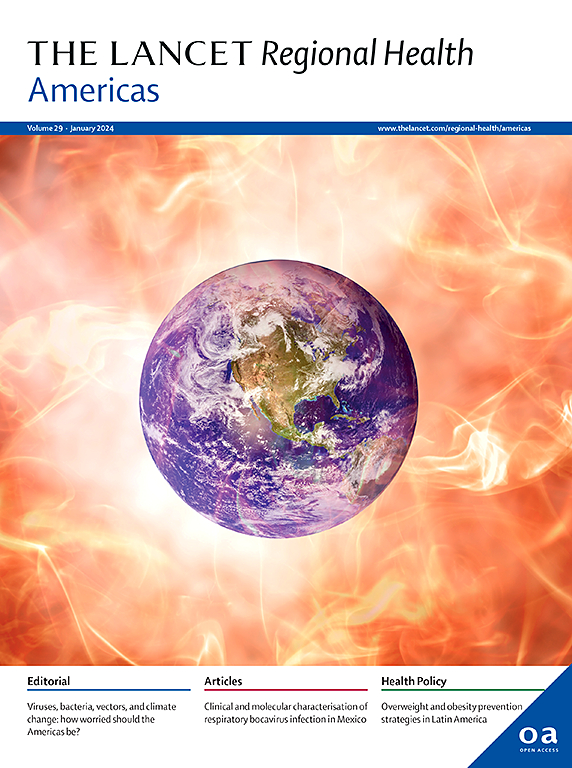Mental health disparities among maternal populations following heatwave exposure in North Carolina (2011–2019): a matched analysis
IF 7
Q1 HEALTH CARE SCIENCES & SERVICES
引用次数: 0
Abstract
Background
The increasing incidence of extreme heat due to climate change poses a significant threat to maternal mental health in the U.S. We examine the association of acute exposure to heatwaves with maternal mental health conditions in North Carolina from 2011 to 2019.
Methods
We incorporate a matched analysis design using NC Hospital Discharge Data to examine emergency department admissions for psychiatric conditions during the warm season (May to September), matching heatwave periods with non-heatwave unexposed periods at the zip code tabulation area (ZCTA) level. We stratify the sample to examine effect modification across the rural-urban continuum, physiographic regions, measurements of neighborhood racial and economic inequality, and individual-level sociodemographic factors (e.g., age, race/ethnicity, and insurance type).
Findings
Our sample of 324,928 emergency department visits by pregnant individuals has a mean age of 25.8 years (SD: 5.84), with 9.3% (n = 30,205) identifying as Hispanic. Relative risk (RR) estimates and 95% confidence intervals (CI) indicate significant increases in maternal mental health burdens following heatwave exposure. Acute heatwave periods were associated with a 13% higher risk of severe mental illness (RRSMI: 1.13, CI: 1.08–1.19, p: <0.0001), while prolonged exposure to moderate-intensity heatwaves was associated with 37% higher risk (RRSMI: 1.37, CI: 1.19–1.58, p: <0.001). Individual factors (e.g., advanced maternal age and insurance providers) and neighborhood-level characteristics, like low socioeconomic status, racialized and economic segregation, rurality, and physiographic region, further modified the risk of adverse maternal mental health outcomes.
Interpretation
Our results add to the growing evidence of the impact of extreme heat on maternal mental health, particularly among vulnerable subpopulations. Additionally, findings emphasize the influence of socioeconomic and environmental contexts on mental health responses to heatwave exposure.
Funding
This work was supported by the Faculty Early Career Development Program (CAREER) award (grant #2044839) from the National Science Foundation and the National Institute of Environmental Health Sciences (NIEHS) award (grant #5R03ES035170-02).
求助全文
约1分钟内获得全文
求助全文
来源期刊

Lancet Regional Health-Americas
Multiple-
CiteScore
8.00
自引率
0.00%
发文量
0
期刊介绍:
The Lancet Regional Health – Americas, an open-access journal, contributes to The Lancet's global initiative by focusing on health-care quality and access in the Americas. It aims to advance clinical practice and health policy in the region, promoting better health outcomes. The journal publishes high-quality original research advocating change or shedding light on clinical practice and health policy. It welcomes submissions on various regional health topics, including infectious diseases, non-communicable diseases, child and adolescent health, maternal and reproductive health, emergency care, health policy, and health equity.
 求助内容:
求助内容: 应助结果提醒方式:
应助结果提醒方式:


